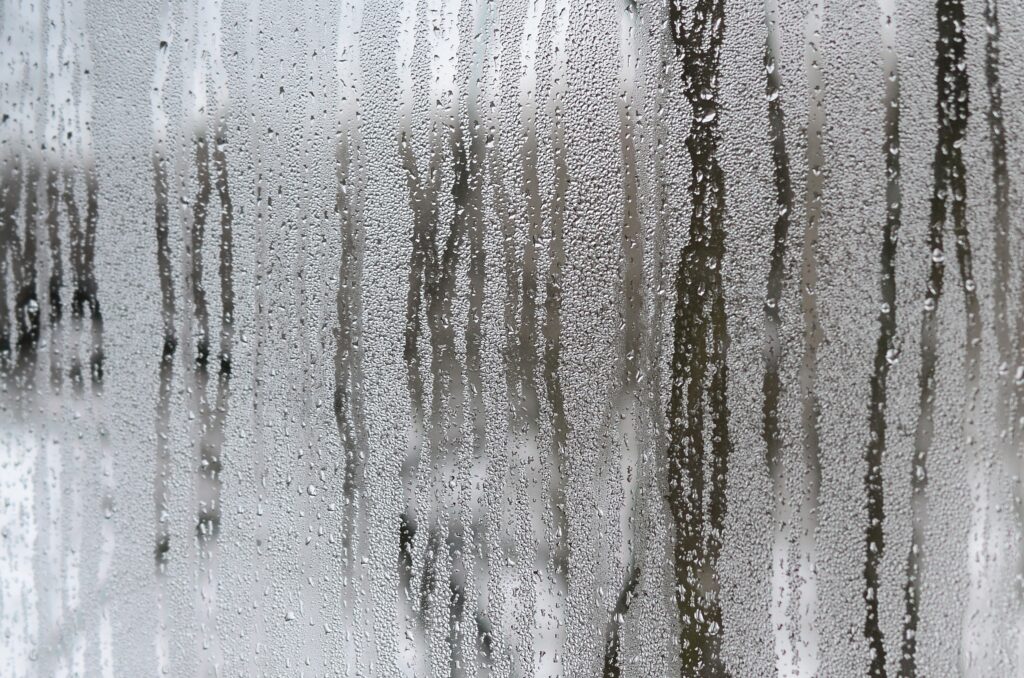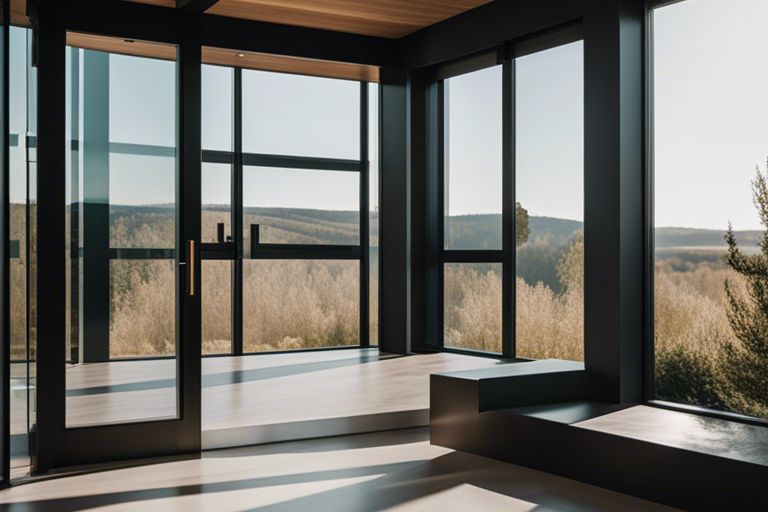When it comes to selecting the ideal windows for your home, weather conditions play a crucial role in making the right choice. Aluminium windows are a popular choice for their durability, low maintenance, and modern aesthetic, but it’s important to consider how they will perform in your specific environment. In this guide, we will help you navigate the process of selecting the best aluminium windows for your climate, whether you are dealing with extreme heat, cold, or moisture. By the end of this post, you will have the knowledge and tools necessary to make an informed decision that will enhance the comfort and energy efficiency of your home.
Key Takeaways:
- Consider the climate: The first step in choosing the best aluminium windows is to consider the climate of your location. Different climates require different window specifications in terms of insulation, durability, and energy efficiency.
- Choose the right glass: Glass selection is crucial in determining the performance of your aluminium windows. For cooler climates, double or triple-pane glass with low-emissivity coatings is recommended for better insulation.
- Look for thermal break technology: In cold climates, thermal break technology helps to prevent heat loss through the frame, while in hot climates, it prevents heat gain, making it essential for energy-efficient windows.
- Consider wind and rain resistance: Depending on the climate, it is important to select aluminium windows with adequate wind and rain resistance to ensure they can withstand extreme weather conditions.
- Energy efficiency is key: Look for windows with high energy efficiency ratings to help reduce heating and cooling costs, regardless of the climate.
- Consult with a professional: When in doubt, seek advice from a professional who can assess your specific climate and recommend the best aluminium windows for your needs.
- Invest in quality: Choosing the best aluminium windows for your climate may require a higher initial investment, but the long-term benefits of improved energy efficiency and durability make it a worthwhile investment.
Understanding Aluminium Window Types
If you’re in the market for new aluminium windows, it’s important to understand the different types available to make the best choice for your home. Here are the important window types you need to be aware of:
- Casement Windows
- Sliding Windows
- Fixed Windows
- Louvred Windows
- Tilt and Turn Windows
Assume that you want to learn more about each type of window, and how they might suit your specific needs. To read about specific things to keep in mind when looking for aluminium windows, you can check out this5 Things to Keep in Mind if Looking for Aluminum Windows article.
Fixed vs. Operable Windows
When choosing the best aluminium windows for your climate, it’s important to consider whether you want fixed or operable windows. Fixed windows are great for letting in light and providing a view, while operable windows can improve ventilation and airflow in your home. You’ll need to consider the climate in your area to determine which type is most suitable for your needs.
Thermal Break and Non-Thermal Break Windows
In your search for the best aluminium windows, you’ll come across the terms thermal break and non-thermal break. Thermal break windows are designed to prevent heat transfer, making them more energy-efficient and suitable for extreme climates. Non-thermal break windows are more affordable, but may not provide the same level of insulation. Consider the climate in your area, as well as your energy efficiency goals, to determine which type is the best fit for your home.
Factors to Consider for Your Climate
Obviously, when choosing the best aluminium windows for your climate, you need to take several factors into consideration. Here are some key points to keep in mind:
- Temperature Ranges and Insulation
- Weather Patterns and Durability Requirements
Knowing What makes system aluminium windows perfect for your home will help you make an informed decision that suits your specific needs.
Temperature Ranges and Insulation
When it comes to your climate, the temperature ranges and insulation properties of your aluminium windows play a vital role in ensuring your comfort. You need to consider factors such as heat loss, heat gain, and energy efficiency. It’s essential to choose windows with the right thermal performance to keep your home comfortable and energy-efficient.
| Temperature Ranges | Consider the average temperature range in your area to determine the level of insulation your windows will need. |
| Insulation | Look for windows with superior insulation properties to minimize heat transfer and maintain a consistent indoor temperature. |
Weather Patterns and Durability Requirements
Your climate’s specific weather patterns and durability requirements should also influence your choice of aluminium windows. Harsh weather conditions such as strong winds, heavy rain, or extreme temperatures require windows with exceptional durability and weather resistance. You need windows that can withstand the elements and protect your home from potential damage.
Consider the weather patterns in your area and choose aluminium windows that are specifically designed to withstand them. It’s important to prioritize the durability and strength of the windows to ensure long-term performance and protection for your home.
Step-by-Step Guide to Selecting Aluminium Windows
After deciding to invest in aluminium windows for your home, it is important to select the right ones that are suitable for your specific climate. Here is a step-by-step guide to help you choose the best aluminium windows for your needs:
Assessing Your Climate Needs
When selecting aluminium windows for your climate, it is crucial to assess your specific climate needs. Factors such as temperature fluctuations, humidity levels, and exposure to extreme weather conditions should all be taken into consideration. It is important to choose windows that can withstand the unique challenges posed by your climate.
Comparing Window Features and Technologies
When comparing aluminium windows, it is important to look at the various features and technologies they offer. You should consider factors such as energy efficiency, insulation, and durability. Additionally, look for windows with features such as thermal breaks, low emissivity coatings, and double glazing, as these can significantly impact the performance of the windows in your climate.
Tips and Best Practices
For choosing the best aluminium windows for your climate, consider the following tips and best practices:
- Understand your climate: Research and understand the specific climate conditions in your area, including temperature fluctuations, humidity levels, and exposure to extreme weather events.
- Consult with a professional: Seek advice from a reputable window specialist or contractor who can provide insights into the most suitable aluminium window options for your climate.
- Consider energy efficiency: Look for aluminium windows with high energy efficiency ratings to help regulate indoor temperature and reduce heating or cooling costs.
- Explore different styles: Consider different aluminium window styles that are designed to withstand specific climate conditions, such as casement, awning, or fixed windows.
Knowing these tips and best practices will help you make an informed decision when selecting aluminium windows that are best suited for your climate.
Pros and Cons of Different Aluminium Window Styles
When it comes to aluminium window styles, it’s important to weigh the pros and cons before making a decision. Below is a breakdown of the main advantages and disadvantages for different styles:
| Window Style | Pros and Cons |
| Casement Windows | Pros: Excellent ventilation and security | Cons: Limited in size and can be affected by strong winds |
| Awning Windows | Pros: Provide ventilation even during rain | Cons: Limited view and potential for debris buildup |
| Fixed Windows | Pros: Airtight and energy-efficient | Cons: Cannot be opened for ventilation |
Maintenance and Longevity Tips for Harsh Climates
When it comes to maintaining aluminium windows in harsh climates, here are some important tips to consider:
- Regular cleaning: Clean your aluminium windows frequently to remove salt, dirt, and debris that can build up and cause damage.
- Inspect seals and weather-stripping: Check the seals and weather-stripping regularly to ensure they are intact and functioning properly to prevent air and water leaks.
- Apply protective coatings: Consider applying protective coatings to your aluminium windows to provide an extra layer of defense against harsh weather conditions.
Though aluminium windows are durable, it’s essential to maintain them properly in harsh climates to ensure their longevity and performance.

The Best Aluminium Windows for Your Climate
The choice of aluminium windows for your home is crucial in ensuring energy efficiency and durability. When selecting the best aluminium windows for your climate, you should consider factors such as thermal performance, weather resistance, and insulation properties. It is important to understand the specific climate conditions in your area and choose windows that can withstand extreme temperatures, precipitation, and humidity. Additionally, look for windows with high energy ratings and low U-factors to optimize insulation and minimize heat transfer. By carefully evaluating these factors, you can select the best aluminium windows that will effectively protect and insulate your home in any climate.
FAQ
Q: What factors should I consider when choosing aluminium windows for my climate?
A: When choosing aluminium windows for your climate, consider factors such as temperature range, humidity, wind exposure, and the prevalence of extreme weather conditions in your area.
Q: What type of aluminium windows are best for hot and sunny climates?
A: In hot and sunny climates, consider selecting aluminium windows with low solar heat gain coefficients and high energy efficiency ratings to minimize heat transfer and maintain a comfortable indoor temperature.
Q: How can I choose aluminium windows that are suitable for cold and snowy climates?
A: For cold and snowy climates, opt for aluminium windows with excellent insulation properties, such as double or triple-glazed windows with low U-values to reduce heat loss and minimize condensation build-up.
Q: Are there specific window designs that are better suited for windy and storm-prone climates?
A: In windy and storm-prone climates, consider selecting aluminium windows with strong, durable frames and impact-resistant glass to withstand high winds and potential impact from debris during severe weather events.
Q: How can I ensure that my chosen aluminium windows are resistant to corrosion in coastal climates?
A: To ensure resistance to corrosion in coastal climates, look for aluminium windows that are treated with a protective coating or finish designed to withstand exposure to salt air and moisture, such as anodized or powder-coated finishes.
Q: What maintenance requirements should I consider for aluminium windows in different climates?
A: Depending on the climate, regular maintenance of aluminium windows may include cleaning to remove dirt and debris, lubricating moving parts, and inspecting for any signs of wear or damage, particularly in areas prone to extreme weather conditions.
Q: How can I find a reputable supplier or manufacturer of aluminium windows for my climate?
A: When seeking a supplier or manufacturer of aluminium windows, look for companies with a proven track record of providing windows specifically designed and tested for your climate, as well as certifications or warranties that guarantee their performance and durability in your specific environmental conditions.






